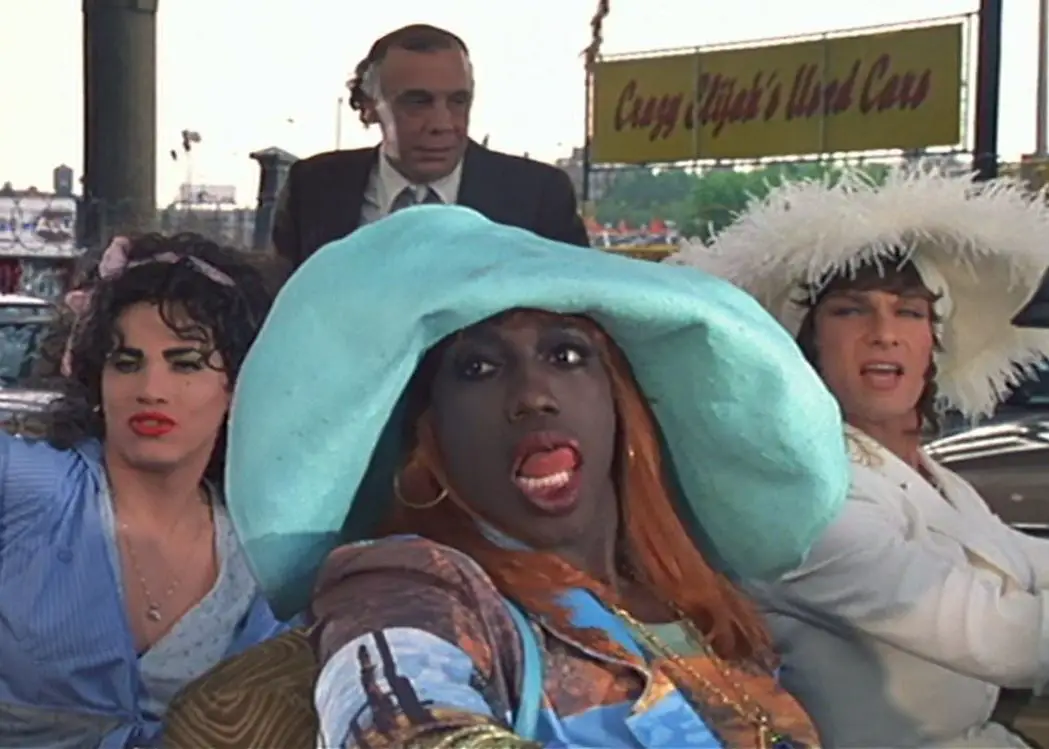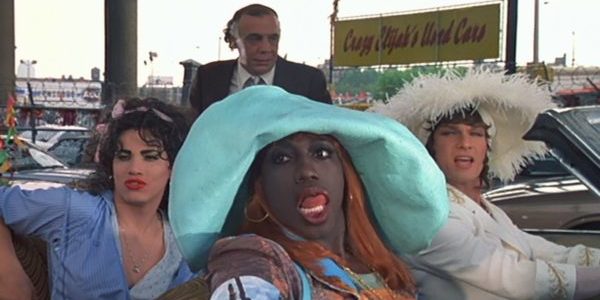Video Dispatches: Shout! Celebrates Pride Month

Midwesterner, movie lover, cinnamon enthusiast.
Video Dispatches is a regular column featuring reviews of recent home video releases.
To Wong Foo Thanks for Everything, Julie Newmar (1995) – Shout!

To Wong Foo’s story, and its archetypes, feel as old as storytelling itself: a leader, right-hand man and bashful newbie hit the road, and when their trip gives them more than they asked for, the end up all the better for it. But the film wields this classic storytelling to reverse a hegemonic relationship between three drag queens and rural townsfolk.
Of course, the optics of the story could sound condescending — three New Yorkers secure in their sexuality land in a rural American town, Snydersville (shot in Loma, Nebraska), when their Cadillac breaks down on the way to a Hollywood drag contest, and end up helping many of them in various ways, most significantly, empowering a woman to stand up to her abusive husband. But To Wong Foo is incredibly heartwarming, carried by its three primary performances: Patrick Swayze, Wesley Snipes and John Leguizamo.
Their main opposition is a local sheriff (Chris Penn), who stops them on the outskirts of Snydersville near the beginning of the film and attempts to rape Swayze’s Vida. That scene in particular is a great showcase for how director Beeban Kidron is able to portray something so disgusting and threatening while maintaining a certain level of levity and innocence without feigning a level of obligatorily gland-handing the audience (e.g. Hidden Figures) nor losing any of the situation’s emotional punch.
Shout!’s new disc is a more than welcome addition to the Blu-ray market, given the film’s fandom and importance to the queer canon, and the new making-of documentary featured, Easy Rider in Dresses, its main supplement, should be significant bait for any longtime fans as well as a treat to new fans, like myself. Through talking-head-shot interviews with Kidron, Leguizamo and screenwriter Douglas Carter Beane, it acts a bit of an oral history of the film from page to screen.
Jeffrey (1995) – Shout!

I’ve seen multiple people relate Jeffrey, a film about a gay man (played by Steven Weber) in New York turning celibate for fear of contracting AIDS, as its generation’s Annie Hall or Manhattan, but the film would be more appropriately tagged as proto-Sex & the City. The opening of the film even starts nearly identical to the HBO show’s pilot. And rather than the craft of a classic Woody Allen film, Jeffrey has a sitcom aesthetic and structure, unlike many of the AIDS-related films of the time, like Life of the Party or Longtime Companion.
“It’s more a series of sketches and momentary inspirations than a story that grows interesting – and to guard against our growing too involved, there are intertitles and other self-conscious devices,” wrote Roger Ebert in his review.
For The New York Times, Caryn James said the screen adaptation is “erratically funny and heavy-handed about its message, But for anyone who missed the play, the film offers a strong echo of its best qualities and a couple of truly hilarious moments.”
I must have missed those moments, but that’s not to say Jeffrey is a chore. However, Ebert is right; the often flourishing breaks from traditional storytelling end up cutting us off from any emotional insight into Jeffrey as a character, instead offering us a buffet of mishmash distractions, all of which are neither terrible nor memorable.
Sigourney Weaver appears in a quick role that predates Tom Cruise’s eccentric motivational speaker in Magnolia, and Patrick Stewart and Nathan Lane are both welcome presences.
Alfonso Duralde’s commentary with Weber is not exactly what I expected — a traditional textual analysis enlightening the emotional importance of many of the scenes, giving context for many of the scenes for those that don’t understand what it was like to date during the US aids crisis — but that’s not to say it’s not plenty enjoyable. Duralde leads the commentary as if an extended interview, which often breaks into shooting the shit on semi-relevant topics, rather than paying attention to the Jeffrey to give beat-by-beat breakdowns.
Boom! (1968) – Shout!

Joseph Losey’s Boom! is no doubt the filet of Shout!’s Pride lineup — an excessive, mid-summer bath in sunlight and booze chronicling Sissy Goforth’s (Elizabeth Taylor) Mediterranean binge — one last one that’ll finally lead her to death. When a poet, Flanders (played by Taylor’s real-life husband twice over, Richard Burton), shores up on Sissy’s beautiful mansion, the two talk to, at and past each other about life, death and nothing in between.
Bluntly, it’s a wild film. If you’re not on board when Taylor, at the hour mark, with both hands wrapped around a pitcher of bloody mary, says, “I live in absolute naturalness of nature. And if it shocks anybody, too bad. Goodbye, anybody. I give not a tinker’s damn,” I’m afraid you never will be.
Tennessee Williams, who adapted his own play, doesn’t spare Burton from his venomous and serpentine wit, like when Flanders, while dressed as a samurai, tells Noel Coward’s The Witch of Capri, “You’re the heart of a world that has no heart, the heartless world that you live in.” Or like when he spits at Taylor’s Sissy, “You don’t summon guests who might ignore the summons, because you’ve developed some curious habits, like keeping a revolver in your pocket and keeping your hand in the pocket.”
The film’s set affords a near-constant barrage of rapturous beauty, such as the seaside blue light that spills into the cavernous walls of the mansion creating a backlight for a bouquet of white flowers. And Taylor’s wardrobe, which changes at a rapid paces, is just as fascinating.
Paradoxically, Boom! is both oblique — in its narrative and formal propulsion — and direct — in its unmistakable swirl down the drain of madness, punctuated by a memorable last breath that predates Neutral Milk Hotel’s opus, “The shock of each moment of being alive.”
This release, which features a commentary track from one John Waters (it’s his favorite film) and another supplement from Duralde, should be nothing short of mandatory.
Does content like this matter to you?
Become a Member and support film journalism. Unlock access to all of Film Inquiry`s great articles. Join a community of like-minded readers who are passionate about cinema - get access to our private members Network, give back to independent filmmakers, and more.













